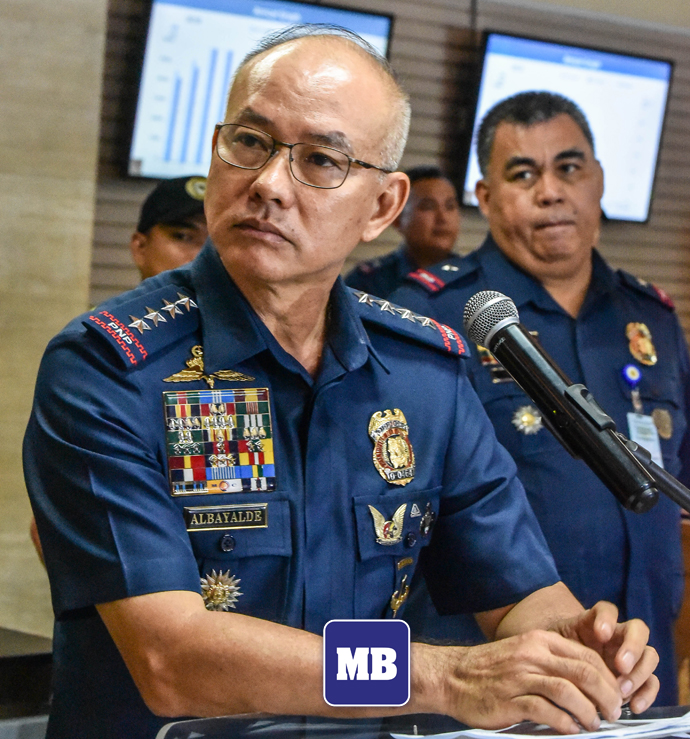
Amid the issues of communist rebel recruitment among students and the police ban inside the University of the Philippines (UP), the Philippine National Police (PNP) disclosed that it has recorded 186 illegal drug-related offenses and 12 rape cases in a barangay located within the Diliman campus.
PNP chief Gen. Oscar Albayalde said the figures were recorded since 2016 and occurred at Barangay UP Campus in Quezon City.
The illegal drug-related and rape cases, according to Albayalde, are part of the more than 1,600 crime incidents that occurred inside the Barangay UP Campus since 2016.
“So the chairman of the Commission on Higher Education (CHEd) was right, that they could not even address the problem of illegal drugs and there were even 12 cases of rape inside Barangay UP Campus,” said Albayalde.
It was CHEd chairman Prospero de Vera who disclosed the alleged illegal drugs problem inside UP Diliman in a press briefing after a meeting with top officials at the height of the insistence of security officials to deploy policemen and soldiers inside colleges and universities allegedly to prevent recruitment of the New People’s Army (NPA).
The UP leadership, however, assailed the alleged prevalence of illegal drugs inside Diliman campus, saying it is just a ploy to justify deployment of policemen inside all UP campuses.
Albayalde explained that the 240 personnel of the UP Police is not enough to guard the more than 400 hectares of UP Diliman campus.
“They want autonomy. They have 240 guards that guard like more than 400 hectares of land. It is not enough,” said Albayalde.
“One thing more is they don’t have the police power to arrest. Of course with warrantless arrest they can but they don’t have police powers to file cases. They have to go to the police,” he added.
This is the reason, according to him, why they want to assist in maintaining oeace and order inside UP Diliman.
Currently, policemen and soldiers are now allowed to enter UP campuses without proper coordination under the agreement signed between UP and the Department of National Defense in 1989. (Aaron Recuenco)


